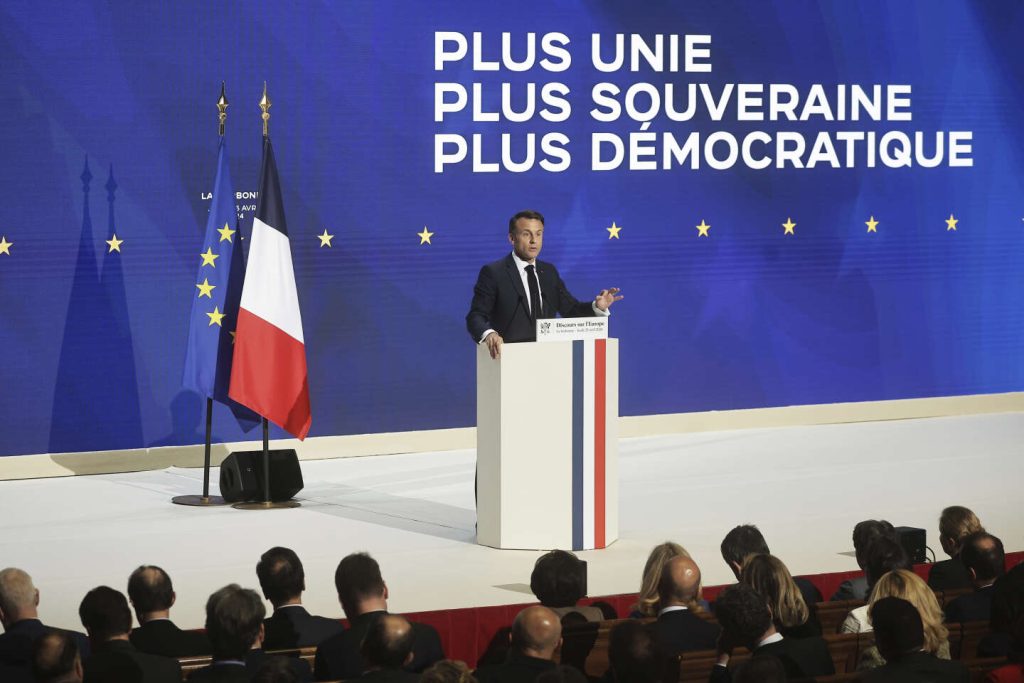During his speech on Europe at the Sorbonne University on April 25, 2024, Emmanuel Macron aimed to guide the agenda that the EU will set after the European elections on June 9. Macron had previously been successful in this exercise in 2017 and hoped to repeat it. However, France’s influence in the EU has changed over the years and may suffer as a result. The concept of European sovereignty, which Macron first introduced in 2017, has become more widely accepted across Europe since then.
France played a key role in important EU decisions, such as the European post-pandemic recovery plan, joint vaccine and gas purchases, digital regulation, defense mechanisms, nuclear energy rehabilitation, and industrial policy development. These initiatives reflect the idea of a sovereign Europe that Macron envisioned in 2017. Macron now calls for a powerful Europe to prevent its potential disappearance, citing the return of war to Europe and intense competition in future technologies from China and the US as reasons for the need to advance EU capabilities.
In the current context, Macron believes that EU monetary, budgetary, commercial, and industrial policies need significant restructuring. His proposals are not universally accepted within the EU, with some, particularly those not favored by Germany, potentially facing opposition. France may struggle to exert its influence in the upcoming legislative period, as it has enjoyed its peak influence in recent years. Despite having some allies in the EU Council, where both conservatives and liberals are gaining ground, Macron may face challenges in pushing through his agenda.
Paris will not hold a strong position within EU institutions in the coming years. The Conservative European People’s Party (EPP) is gaining strength in the EU Council, while liberal Renew members are dwindling. Macron’s allies in the Council, including leaders from the Netherlands, Belgium, Slovenia, and Estonia, may see changes in leadership soon. A diplomat notes that France’s capacity for leadership is crucial for shaping Europe, but acknowledges the importance of political alliances in Strasbourg for key appointments in the Commission and Council. Macron’s vision for a more powerful and sovereign Europe may face challenges in a changing political landscape within the EU.


